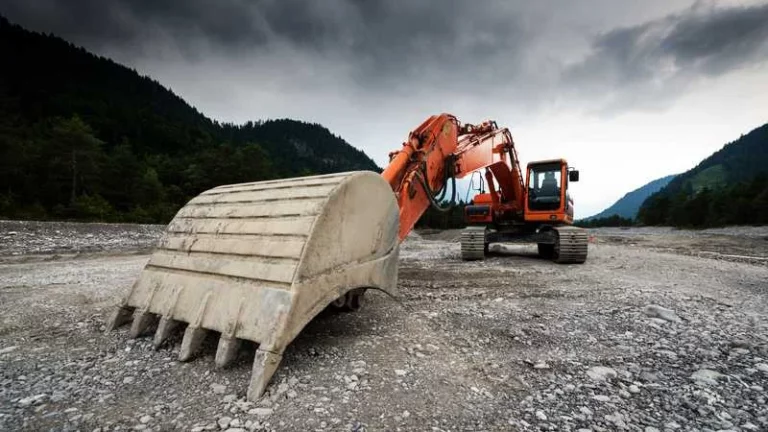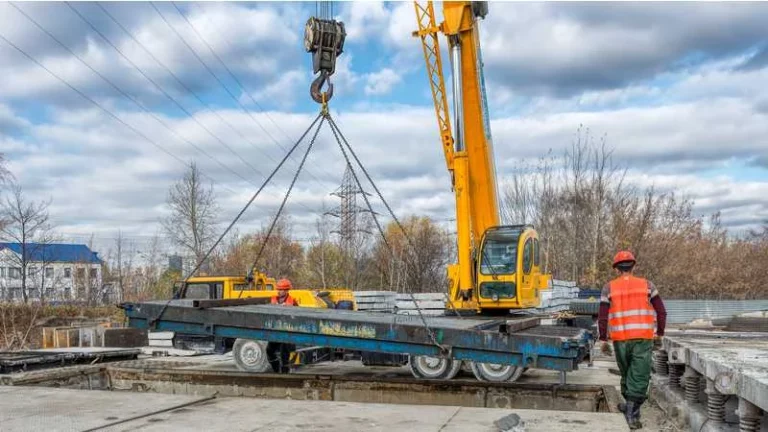In the world of heavy equipment, where efficiency and operator comfort are paramount, whether heavy machinery comes equipped with air conditioning (AC) looms large. The availability and benefits of AC in these colossal machines can significantly impact the productivity and well-being of operators working in harsh conditions.
Some heavy equipment has air conditioning to provide operator comfort in challenging working conditions.
In this article, we delve into the fascinating realm of heavy equipment to unravel the mystery surrounding the presence of air conditioning, exploring its potential advantages without revealing a definitive answer. Join us as we explore the intricate relationship between heavy machinery and AC, shedding light on the factors that influence its availability and the potential benefits it can bring to operators in their demanding environments.
Introduction to the Need for Air Conditioning in Heavy Equipment
Unyielding heat, dusty environments, and long working hours make operating heavy equipment physically demanding. In such grueling conditions, ensuring the comfort and well-being of operators becomes crucial for productivity and safety.
This is where the need for air conditioning (AC) in heavy machinery arises. AC systems offer respite to operators by providing a controlled and comfortable environment within the operator cabin, mitigating the adverse effects of extreme temperatures and enhancing their overall working experience.
The demand for air conditioning in heavy equipment is driven by the recognition that operator comfort directly impacts performance and efficiency. By maintaining a cool and comfortable cabin temperature, AC systems help operators stay focused, alert, and productive throughout their shifts. Moreover, AC can contribute to reducing the risk of heat-related illnesses and fatigue, ensuring the health and well-being of operators.
Understanding the availability and benefits of air conditioning in heavy machinery is vital for equipment manufacturers, operators, and industry professionals, as it allows for informed decision-making and optimizing work environments for enhanced operator satisfaction and operational excellence.
Factors Influencing the Presence of Air Conditioning in Heavy Machinery
Several factors contribute to the presence or absence of heavy machinery air conditioning (AC). These include:
- Equipment Type and Purpose: The type of heavy machinery and its intended use plays a significant role in determining the presence of air conditioning. Certain equipment, such as excavators or bulldozers, may be more likely to have AC due to their frequent operation in rugged and extreme environments.
- Operator Comfort and Safety Regulations: The comfort and well-being of operators are increasingly valued in the industry. Companies prioritize providing a comfortable working environment to attract and retain skilled operators while adhering to regulations that promote occupational health and safety.
- Environmental Conditions: The climate and working conditions in which heavy machinery operates influence the need for air conditioning. Equipment used in hot and humid environments and dusty or polluted areas may have AC to safeguard operator health and ensure optimal performance.
- Operator Feedback and Demand: Operator feedback and demand play a significant role in including air conditioning in heavy machinery. Manufacturers and equipment providers consider operators’ preferences and requirements to enhance their working experience and productivity.
- Cost Considerations: Implementing air conditioning systems can impact their availability. Complex installations, maintenance requirements, and additional fuel consumption may affect the decision to equip heavy machinery with AC, especially for equipment with lower profit margins or limited usage in extreme conditions.
- Technological Advancements: Advancements in air conditioning technology, such as more efficient and compact systems, can influence their presence in heavy machinery. New developments may make AC more affordable, reliable, and energy-efficient, leading to wider adoption in the industry.
Understanding these factors helps manufacturers, equipment providers, and operators make informed decisions regarding including air conditioning in heavy machinery, striking a balance between operator comfort, regulatory compliance, environmental conditions, and cost considerations.
Exploring the Benefits of Air Conditioning in Heavy Equipment
Air conditioning (AC) in heavy equipment brings many benefits that enhance operator comfort, performance, and overall operational efficiency. Let’s delve into these advantages:
- Operator Comfort: AC creates a comfortable working environment inside the operator cabin, regardless of external temperatures or harsh conditions. It helps regulate the temperature, reducing heat stress and fatigue and improving operator focus and alertness.
- Increased Productivity: Comfortable operators maintain higher productivity levels throughout their shifts. AC minimizes distractions caused by discomfort, allowing operators to concentrate on their tasks and operate heavy equipment efficiently.
- Enhanced Safety: Heat-related illnesses, such as heat exhaustion or heatstroke, can pose serious risks to operators in extreme environments. By providing a cool and controlled cabin temperature, air conditioning helps mitigate these health hazards, promoting operator safety and reducing the likelihood of accidents due to heat-related fatigue or discomfort.
- Dust and Particle Control: Heavy machinery often operates in dusty or polluted environments. AC systems can filter and purify the incoming air, reducing the concentration of harmful particles and contaminants inside the cabin. This protects the operator’s respiratory health and improves overall air quality.
- Equipment Protection: Air conditioning helps maintain a stable and controlled environment within the operator’s cabin. By reducing humidity and moisture levels, AC systems prevent potential damage to sensitive equipment components, electronics, and instrumentation.
- Operator Retention and Satisfaction: Air conditioning in heavy equipment demonstrates a commitment to operator well-being and comfort. This can contribute to higher operator retention rates, as operators are likelier to choose and remain with employers who prioritize their comfort and create a supportive working environment.
Compliance with Regulations: Occupational health and safety regulations increasingly recognize the importance of operator comfort. Equipping heavy equipment with air conditioning helps companies comply with these regulations and ensure the well-being of their operators.
How Air Conditioning Enhances Operator Well-being
Air conditioning (AC) in heavy equipment is vital in enhancing operator well-being, providing various benefits to their physical and mental health. One key aspect is temperature regulation. Heavy equipment often operates in harsh environments with extreme temperatures, leading to discomfort, heat stress, and fatigue.
AC systems help maintain a cool and comfortable cabin temperature, creating an environment that promotes operator comfort and prevents heat-related illnesses. By alleviating the physical strain caused by excessive heat, AC enhances operator well-being and allows them to work more effectively and safely for extended periods.
In addition to temperature regulation, air conditioning in heavy equipment improves respiratory health and air quality within the operator’s cabin. Many construction sites and industrial settings are prone to dust, pollutants, and allergens, which can adversely affect the operator’s respiratory system.
AC systems in heavy equipment are equipped with air filtration and purification mechanisms that effectively remove these particles from the incoming air, resulting in cleaner and healthier cabin air. By reducing the inhalation of harmful substances, air conditioning promotes better respiratory health, reduces the risk of respiratory issues, and enhances the overall well-being of operators.
Examining the Impact of AC on Operator Performance and Focus
Examining the impact of air conditioning (AC) on operator performance and focus reveals its significant influence on heavy equipment operators’ overall productivity and effectiveness. Firstly, AC systems create a comfortable working environment by regulating the cabin temperature, reducing excessive heat or cold that can hinder operator performance.
Comfortable operators are likelier to maintain higher focus and concentration levels, leading to improved attention to detail and enhanced operational efficiency. Working in a controlled climate helps operators stay alert and perform their tasks precisely, reducing the likelihood of errors or accidents due to distraction or discomfort.
Furthermore, AC plays a crucial role in mitigating the negative effects of fatigue. Operating heavy equipment for long hours in challenging conditions can lead to physical and mental exhaustion, impairing operator performance and decision-making abilities. AC helps alleviate fatigue and refreshes operators throughout their shifts by providing a cool and comfortable cabin environment.
This, in turn, enhances their cognitive functioning, reaction times, and situational awareness, allowing them to respond effectively to changing circumstances and maintain optimal performance levels. The improved focus on air conditioning positively impacts heavy equipment operators’ overall efficiency and productivity, contributing to safer and more effective operations.
Weighing the Financial Implications of Air Conditioning in Heavy Machinery
Weighing the financial implications of air conditioning (AC) in heavy machinery is critical for manufacturers and operators alike. One significant aspect to evaluate is the initial investment costs.
The installation of AC systems in heavy machinery involves upfront expenses that can vary depending on factors such as the size and complexity of the equipment, the type of AC system chosen, and any modifications required for integration.
Manufacturers and operators need to assess the feasibility of the initial investment by considering their budget constraints and weighing it against the potential benefits of improved operator comfort, productivity, and safety.
Another crucial financial consideration is the operational and maintenance costs associated with AC systems. These costs include energy consumption to power the AC unit, regular maintenance to ensure optimal performance, and potential repairs or component replacements over time.
Evaluating the long-term operational expenses associated with running and maintaining the AC system is essential. Factors such as fuel efficiency, energy consumption, and maintenance requirements should be considered to assess the financial impact over the lifespan of the heavy machinery.
By conducting a thorough analysis of both the initial investment costs and the ongoing operational expenses, manufacturers and operators can make informed decisions regarding the financial viability of implementing air conditioning in heavy machinery, considering their operational objectives and the potential return on investment.






